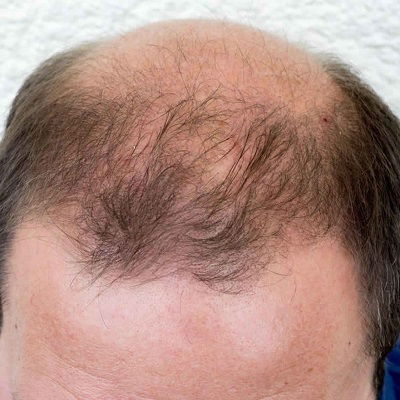Exploring the Connection Between Thyroid Issues and Hair Loss
Thyroid issues can significantly impact various aspects of health, including hair loss. Many individuals experiencing hair thinning or bald patches may not realize that an underactive (hypothyroidism) or overactive thyroid (hyperthyroidism) could be the culprit. Understanding this connection is crucial for effective treatment. For those in Muscat seeking solutions, the Best Hair Loss Treatment Muscat can provide targeted care tailored to individual needs.

Understanding Thyroid Disorders
What Are Thyroid Disorders?
Thyroid disorders affect the thyroid gland, which is responsible for producing hormones that regulate metabolism, energy levels, and overall bodily functions. Two common conditions are:
- Hypothyroidism: This occurs when the thyroid gland does not produce enough hormones. Symptoms may include fatigue, weight gain, and hair loss.
- Hyperthyroidism: Conversely, this condition involves excessive hormone production, leading to symptoms such as weight loss, increased heart rate, and also hair loss.
How Thyroid Disorders Affect Hair Health
Thyroid hormones play a vital role in the hair growth cycle. Hair follicles go through phases of growth, rest, and shedding. An imbalance in thyroid hormones can disrupt this cycle, resulting in increased hair shedding or thinning. For example, in hypothyroidism, hair may become dry and brittle, leading to hair loss. On the other hand, hyperthyroidism can cause hair to become fine and thin. Recognizing these symptoms early is essential for addressing hair loss effectively.
Symptoms of Thyroid-Related Hair Loss
Recognizing the Signs
Individuals with thyroid-related hair loss may experience various symptoms, including:
- Thinning Hair: This can occur all over the scalp or in patches.
- Dry, Brittle Hair: Hair may feel coarse and lack moisture.
- Changes in Hair Texture: The hair might become fine or more fragile.
- Hair Loss in Specific Areas: Some may notice bald patches or increased shedding.
If you are experiencing these symptoms, it may be time to consult a healthcare provider to evaluate thyroid function.
Diagnosing Thyroid Issues
Key Diagnostic Tests
To diagnose thyroid problems, healthcare providers typically conduct:
- Blood Tests: Measuring levels of Thyroid-Stimulating Hormone (TSH), Free T4, and Free T3 can help determine thyroid function.
- Thyroid Antibody Tests: These tests check for autoimmune conditions, such as Hashimoto's thyroiditis, which can cause hair loss.
Once a diagnosis is made, a tailored approach can be developed, including potential treatment options available for individuals in Muscat seeking the best hair loss treatment.
Treatment Options for Thyroid-Related Hair Loss
Addressing the Underlying Thyroid Disorder
The first step in treating hair loss linked to thyroid issues is addressing the underlying condition. Treatment options may include:
- Medications: Hormone replacement therapy for hypothyroidism or antithyroid medications for hyperthyroidism can help restore hormonal balance.
- Lifestyle Changes: Dietary adjustments, stress management, and regular exercise can positively influence thyroid health and hair growth.
Specific Hair Loss Treatments
In addition to managing thyroid health, various hair loss treatments can be effective:
- Topical Treatments: Minoxidil is a common topical treatment that can stimulate hair growth.
- PRP Therapy: Platelet-rich plasma therapy can enhance hair follicle health and promote regrowth.
- Hair Transplants: For more severe cases, hair transplant surgery may be a viable option.
Exploring these options can help individuals in Muscat find the best hair loss treatment for their specific needs.
The Role of Nutrition in Hair and Thyroid Health
Essential Nutrients for Hair Growth
Nutrition plays a crucial role in both thyroid function and hair health. Key nutrients include:
- Iodine: Essential for thyroid hormone production; sources include iodized salt, seafood, and dairy.
- Selenium: Supports thyroid function and may promote hair growth; found in nuts, seeds, and fish.
- Zinc: Important for hair tissue growth and repair; found in meat, legumes, and nuts.
Incorporating these nutrients into your diet can help support thyroid health and, subsequently, hair growth.
Lifestyle Changes to Support Hair Growth
Daily Habits for Healthy Hair
Incorporating healthy habits can significantly impact hair growth, especially for those with thyroid issues. Consider:
- Regular Exercise: Physical activity can boost overall health and improve thyroid function.
- Stress Management: High stress levels can exacerbate hair loss; techniques such as yoga, meditation, or mindfulness can be beneficial.
- Adequate Sleep: Quality sleep supports hormonal balance and overall well-being.
These lifestyle changes, combined with medical treatment, can enhance the effectiveness of the best hair loss treatment in Muscat.
Conclusion
The connection between thyroid issues and hair loss is complex but critical for understanding and addressing hair thinning. By recognizing symptoms, seeking appropriate diagnoses, and exploring various treatment options, individuals can take proactive steps toward healthier hair. For those in Muscat, finding the best hair loss treatment tailored to thyroid health can pave the way for regrowth and restored confidence.
